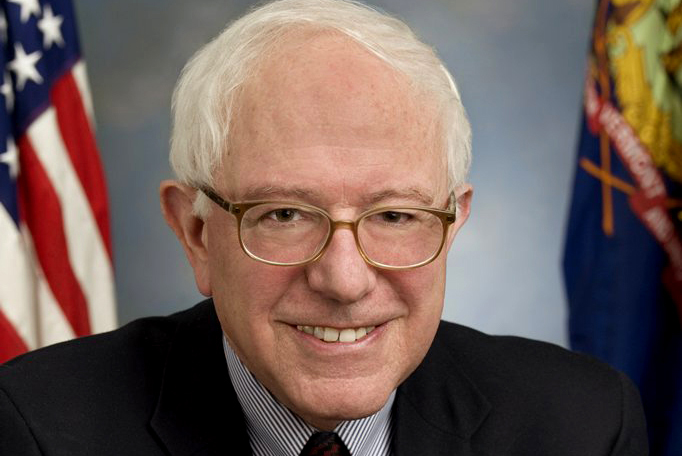
Photo Courtesy of United States Congress, Wikipedia
College kids love free stuff. Ask around and you will find that if free food or prizes are offered at an event, people will go even if they are not interested in the actual theme. More often than not, when lounging about with my friends, at least one person is on the prowl trying to find an event with free food. Who doesn’t enjoy a slice of pizza that they didn’t have to pay for? But do you want to know what is even better than free food?
Free college tuition.
Senator Bernie Sanders, a Democrat from Vermont, promises that if he becomes president, college will be free. Now, I will not lie – that sounds awesome. Who wouldn’t be excited for that prospect? I really hope that if this happens, Bernie will announce in an Oprah-esque manner “You get free education! You get a free education!” Not only does Bernie advocate for free college, but also promises to raise the minimum wage to $15, work to combat climate change and fight for the social rights of minorities.
Personally, I like some of his social policies. Senator Sanders has ideas with a lot of potential that really could improve our nation. However, while I enjoy some of his social policies, how these policies will be funded and his economic plans have me a bit concerned. He plans on paying for these new social policies by heavily taxing the “one percent” (meaning those who make $250,000 or over), Wall Street and corporations, because, according to him, they need to pay their “fair share.” But what exactly is this whole idea of “fair sharing?”
Fair sharing is more of a socialist idea. People believe that by taxing the upper class/corporations harder, it is going against the capitalistic way. However, to understand what that really means, let’s talk economics. Now, I am no expert on economics so I will try to keep this on the simpler side. Let’s first compare and contrast regular socialism and capitalism.
The United States is a capitalist nation. Capitalism tends to be advantageous, for it creates competition between businesses to avoid domineering monopolies, like Apple and Samsung. One of the biggest complaints about it, however, is that companies are still able to hold monopolies.
Socialism is basically the exact opposite of capitalism. Rather than Apple or Google being independent, they would be government controlled/regulated sanctions. A pro to this is that these companies can no longer hold such grandiose monopolies. Although, this can also mean that there is no incentive for businesses or corporations to strive to be the best. By eliminating the competition, companies like Apple that are constantly innovating to stay ahead may falter and no longer feel the need to keep up their paces.
Now, those socialist ideals do not completely coincide with Senator Sanders’. Bernie Sanders is not technically a socialist. He identifies as a Democratic Socialist – aka “Socialist Lite.” Democratic Socialists believe that corporations should not be able to hold monopolies and dominate the market, similar to socialists. However, rather than the government owning these corporations, Democratic Socialists believe that decisions and resources must be focused on meeting the needs of the people rather than just trying to make a profit.
This does not sound awful, right? Well, it is not all unicorns and rainbows. Overall, taxes will increase for nearly everyone in the U.S. That’s right – not just the über-rich. In order to fund his social programs, those in the middle class who make about “$36,200 a year – placing them in 50th percentile … would see an 8 percent reduction ‘in pay,’” according to the Daily Caller. Also, there will be a “2.2 percent income-based premium paid by households.” That is an overall loss of income of 10 percent. Ouch.
As for the rich, our society thrives on the competition of being the best and constant innovation. According to CNN, these people would be hit with tax rates of 39.2 percent, 45.2 percent, 50.2 percent and 54.2 percent – nearly half of their income. Sanders’ plan would be punishing those whom worked hard to get to their positions by taking away such a large chunk of revenue. While upper class individuals still could survive with the amount of money left over, this system is punishing those whom have strived for greatness. Punishing these people may lead to a downfall in innovation all together. Why would someone want to push themselves and make such a large sum of money when half of it will be taken away?
Senator Sanders has good intentions; however, the socialist route should not be the way to fund all of his ideas. Getting rid of competition and punishing those who have been successful only cripple possible innovators and businessmen. While the system of capitalism may have some flaws, doing a complete 180 and punishing those in the upper class is not the way to solve our problems.
sdelleli@ramapo.edu





